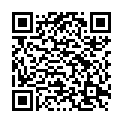|
|
|
| Module code: BMT2612.CI |
|
|
- |
|
5 |
| Semester: 6 |
| Mandatory course: no |
Language of instruction:
German |
Assessment:
[still undocumented]
|
BMT2612.CI (P120-0357) Biomedical Engineering, Bachelor, ASPO 01.10.2018
, semester 6, optional course, medical/technical
BMT2612.CI (P120-0357) Biomedical Engineering, Bachelor, SO 01.10.2025
, semester 6, optional course, medical/technical
|
|
The total student study time for this course is 150 hours.
|
Recommended prerequisites (modules):
None.
|
Recommended as prerequisite for:
|
Module coordinator:
Prof. Dr. Dr. Daniel Strauß |
Lecturer:
Dr. Harald Seidler
[updated 25.04.2021]
|
Learning outcomes:
After successfully completing this module students will be familair with the basics of pathophysiology, as well as the psychology and sociology of hearing impairment and the main strategies of communication with hearing impaired people. They will have an overview of the technical treatment options, especially surgical therapy with a cochlear implant (CI). They will understand how important the subsequent adjustment of the CI is, as well as the methods used to do this.
[updated 25.05.2021]
|
Module content:
1. Pathophysiology of hearing (clinical aspects)
2. Psychology of hearing loss/deafness
3. Sociology of hearing impairment
4. Forms of communication
5. Treatment options for the hearing impaired
6. Surgical therapy for deafness
7. Adjusting the CI
8. Special forms of CI fitting and care
9. Professional requirements for the CI
10. Working with the hearing impaired
11. Follow-up care
12. If possible: a visit to watch a CI operation
[updated 25.05.2021]
|
Teaching methods/Media:
Blackboard, digital projector, software
[updated 25.05.2021]
|
Recommended or required reading:
M. Clark "Cochlear Implants" Springer, 2003
M. Clark "Introduction to Audiology", Allyn & Bacon, 2002
[updated 25.05.2021]
|


